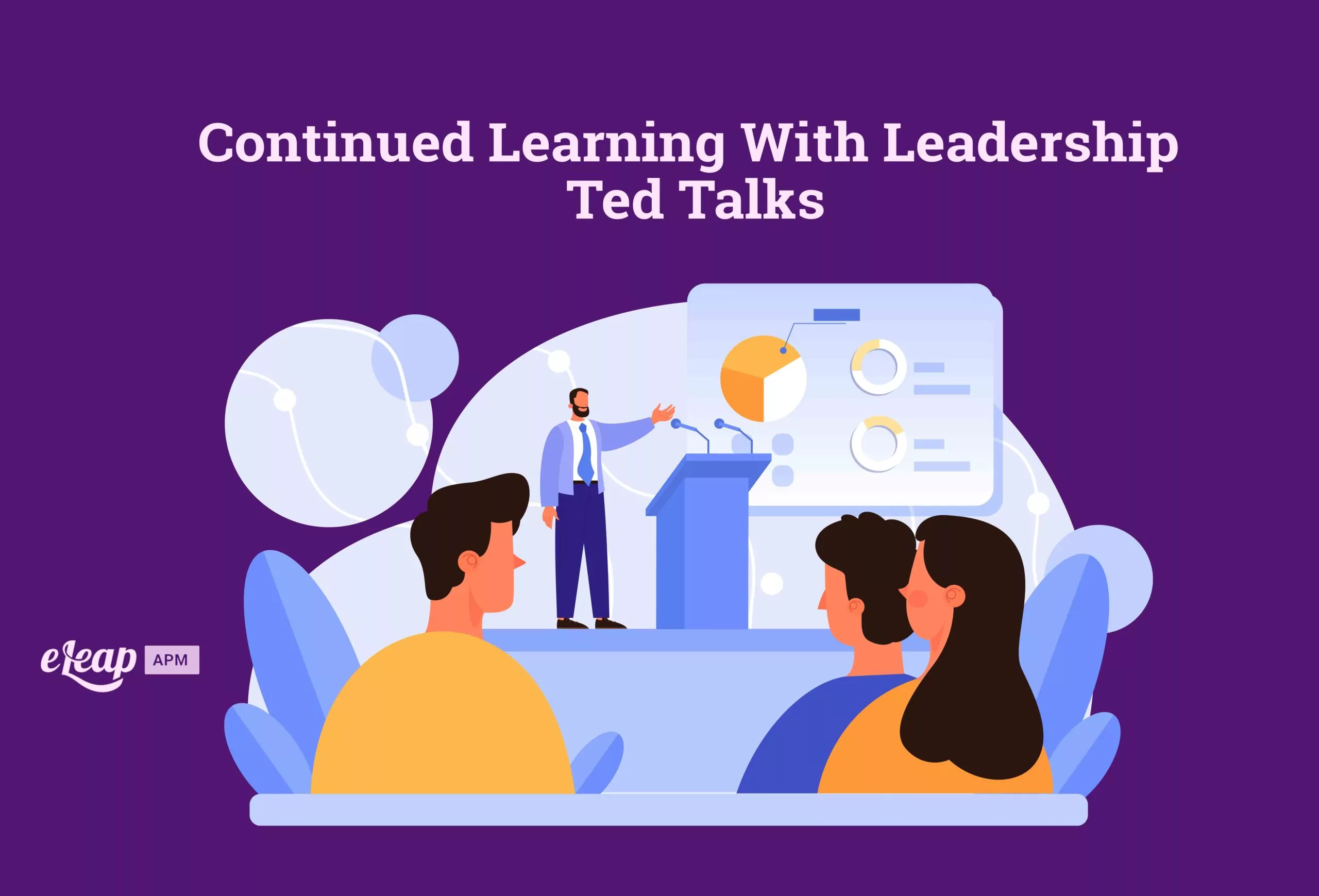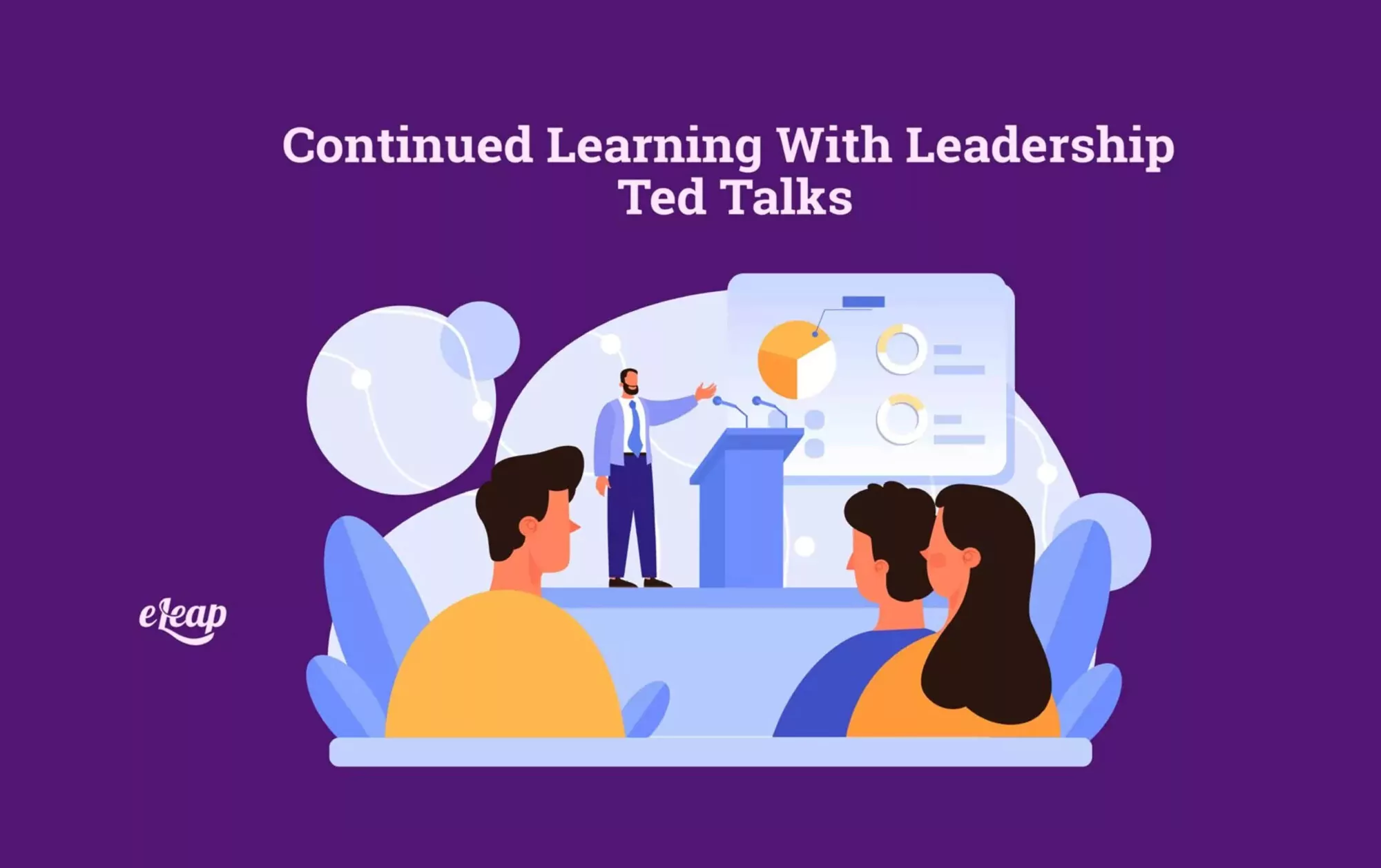Continued Learning with Leadership TED Talks

Leadership TED talks are an excellent way to get new knowledge to keep you flourishing in your career. Leaders are uniquely talented, and they all possess skills that led them to their current position. One thing that most successful leaders have in common is an attitude of lifelong learning.
Some of those leaders, like Bill Gates, take the time to read numerous books every year. The goal is to learn new things from a place of understanding. Unfortunately, every leader doesn’t have enough time to read multiple books a month.
Those leaders need a different method of obtaining knowledge. For them, TED talks can be an answer to their need. Consider the variety of subjects you can embrace when you habitually listen to TED talks.
What Are TED Talks?
Some have heard the phrase, “Welcome to my TED talk,” and wondered what that means. First, TED is an acronym for technology, entertainment, and design. The goal of TED is to spread innovative ideas through short talks referred to as TED talks.
Therefore, a TED talk is a short, powerful speech that was initially presented at a TED event. The talks are recorded and then posted on the TED website. Often, social media sites like Facebook or multimedia sites like YouTube feature TED talks.
History of TED Talks
Richard Saul Wurman founded the TED organization. In February 1984, Harry Marks co-founded the TED conference. That year, the first TED conference took place. Since 1990, the TED conference has been an annual event.
As the acronym suggests, the first TED talks focused on technology, entertainment, and design. However, in recent years, the TED talk focus has broadened. Now, TED includes big ideas on a much wider variety of topics. Global issues, business, education, and health are all good topics for a TED talk. The range of presenters is wide too. Actors, influencers, medical professionals, and scientists have all graced the TED stage.

Qualifications for A TED Talk
The design of TED talks makes them short and powerful. Therefore, the maximum length of a TED talk is 18 minutes. The talks should be about new ideas, backed by concrete evidence, and relevant to a broad group of people.
Leadership TED Talks: Providing Information to Current and Future Leaders
Now that we’ve discussed the definition, history, and qualifications of TED talks, we can look at some of our favorite leadership TED talks. These talks focus on a specific topic related to areas of leadership. Some covered topics include setting goals, learned behaviors, and incivility at work.
Elizabeth Lyle
How to Break Bad Management Habits Before They Reach the Next Generation of Leaders
Elizabeth Lyle is a Leadership Development Expert. She hooks you into her TED talk with a confession many people can relate to. She has a habit of stacking dirty dishes that began in college. Excuses and continued behavior led to a habit that was second nature to her.
Bad habits in any area of life can affect your professional development. Bad behavior is a product of the inability to hold yourself accountable. When we are still young, we must stop the habits before they become part of our routine.
Your learned behavior can be passed on to other people. Today’s business model no longer rewards those who push their way to the top without consideration of others. Tomorrow’s leaders are learning how to behave with every passing communication they have with today’s leaders.
Give your employees the opportunity to do new things while you are there. Empowering them will allow them to grow along with you. According to Lyle, the best learning is on-the-job learning.
In her leadership TED talk, Lyle quotes Warren Buffet and says, “The chains of habit are too light to be felt until they’re too heavy to be broken.” It’s time for leaders to break the chains of habit and learn new behaviors. Embracing new behaviors will help to build stronger leaders now and in the future.
Adam Grant
Are You A Giver or Taker?
Adam Grant is an organizational psychologist, author, and professor. He spent three years studying the dynamics of success and productivity. In his leadership TED talk, he discusses givers, takers, and matchers—three kinds of people that are found in every workplace.
We see these three kinds of people in every aspect of our lives. The takers want to gain as much as possible from everything and are focused on what you can do for them. On the other hand, the givers always have others in mind and don’t expect anything from you when they give. The matchers believe in equal give and take, thinking the world is just.
Grant surveyed 30,000 people to determine the roles these personality types play in a typical office. According to his survey, most workers fall into the category of matchers. The next question was which group was most successful and which was least successful.
Givers fell into both the best performers and the worst performers. They fit both categories because some of them get burned out and exploited on the job. Meanwhile, other givers have strong leadership skills, and their selflessness helps them achieve great success.
Grant says that success is about contribution. An organization performs better at all levels when more people help each other. If givers can excel, then organizations and leaders will experience more opportunities.
John Doerr
Why the Secret to Success Is Setting the Right Goals
According to John Doerr, business is at a critical point. He says that the great institutions are failing us, which shouldn’t be accepted. The reason they are failing us depends on the business—some are unethical, but others have the wrong objectives.
John Doerr is known as the “Johnny Appleseed” of OKRs. His leadership TED talk is an extension of the book he wrote called Measure What Matters. His talk explains why those most successful in leadership roles know how to set the correct goals.
The leaders set goals using an OKR (Objectives and Key Results) system. OKR is a simple system that answers the questions of where you want to go and how you want to get there. Asking these questions allows for collaboration, and it creates the needed atmosphere for even the most spectacular goals. Once you’ve answered those two questions, your execution of key results is much easier.
Many people don’t set goals at all. Those who do set goals aren’t selecting the correct ones. You should regroup and find your why if that sounds like you. The most successful teams join ambition and purpose clearly.
OKRs aren’t an alternative for effective leadership skills or healthy company culture. Instead, using OKRs helps you connect ambition with measurable metrics. It also helps solidify your long-term goals so that it eliminates ambiguity.
Martin Danoesastro
What Are You Willing to Give Up to Change the Way We Work?
Have you ever noticed a flock of birds moves perfectly synchronized? Every bird is independent, but each works simultaneously as they shift direction. Would having only one leader disrupt the flow of their flight?
The description of the birds is a metaphor for today’s workplace. The time it takes for decision-making should speed up in conjunction with technological innovation that speeds up work processes. Martin Danoesastro, a transformation expert, says the key to the change is small, autonomous teams.
Incorporating transparency and open communication into the organization or team becomes a catapult for their success. Many leaders fear letting go of the power they have earned, so they keep information to themselves. Danoesastro says that welcoming transparency helps find appropriate solutions to issues while gaining teammates’ respect. This model leads to a collaborative culture with less hierarchy and new energy.
Adding change to any organization isn’t easy. You must lose old, non-working habits before embracing new ones. So, you should ask yourself what you’re willing to give up.
Christine Porath
Why Being Respectful to Your Coworkers Is Good for Business
Christine Porath is an associate professor at Georgetown University. She gives a science-backed leadership TED talk about how incivility impacts your company. Being disrespectful in any way can be a hindrance to success. Actually, the cost of rudeness can seep over into the company’s bottom line.
Various behaviors fall into the category of incivility. Something you find disrespectful might seem civil to someone else. Small, uncivil actions lead to more significant consequences. For example, not choosing words carefully can have a lasting impact on another person, even if we didn’t mean to create an issue for them.
Porath created a study that found incivility is a demotivator for everyone, including witnesses. One multinational company looked at Porath’s findings and estimates that incivility in their workplace costs them around $12 million annually.
Stress is the number one reason for rude or uncivil behavior. People who allow themselves to exhibit uncivil behavior often feel like acting more affable makes them less leader-like. However, the opposite is true. Empirical evidence shows that those who are encouraging peers earn more respect and a greater chance of success.
Closing Thoughts
These experts provide invaluable advice to those who wish to become better leaders. If you want to practice the habits of great leaders, commit to an attitude of life-long learning. Now that there are TED talks based on leadership attributes, you can learn some of these principles in 18 minutes or less. Use the resources available to you to enhance your leadership skills and continue on the path of learning.